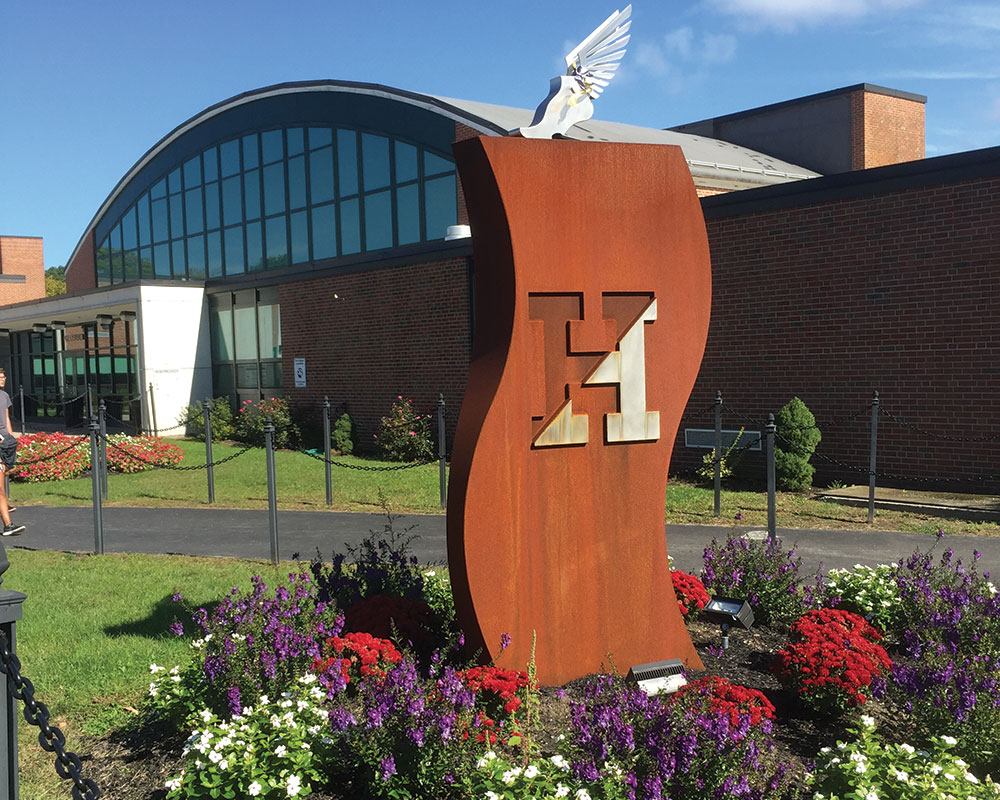Members of the Haverhill High School Student Council say the school’s Early College program with Northern Essex Community College is causing scheduling problems and fewer of the students who would benefit the most are enrolling.
The students made their case about the program, through which students take college courses, during a recent Haverhill School Committee meeting. They received backing from Haverhill School Superintendent Margaret Marotta, who said the administration began noticing similar issues just as the student council approached them.
“There have been some growing pains,” she said, during the past two to three years as enrollment increased from 100 to 240 students.
College Director of Public Relations Melissa L. Bouse wrote in an email to WHAV “this growth has meant we can help more Haverhill students save time and money by starting early on their college degrees and build an earlier connection to NECC.”
The college recently completed a $1 million endowment fund to pay for Early College students’ degrees if they wish to complete their associate’s there, according to Northern Essex President Lane A. Glenn. He added, “we will continue to work with HPS staff to make adjustments to the program as appropriate.”
School Committee member Paul A. Magliocchetti said he was there when the program first began.
“It was to capture these students that didn’t believe they could go to college, to give them the experience so they could have the confidence to take that next step,” he said at the School Committee meeting. “They had the potential. They just weren’t realizing it.”
Since then, according to Student Council President Melanie Palascio, high-achieving students have flooded in.
“The biggest thing for us is equity. The Early College program was created to [provide] an opportunity for students who didn’t have the resources, were first generation, usually of underserved communities,” she said. “And we’ve seen a large shift within this, in Early College. All of those kids who the program was originally intended for aren’t always getting the opportunity to participate.”
The goals of the program have remained the same, Bouse told WHAV. They are “saving students time and money, giving them an early introduction to college life and connection to NECC programs of study, and helping them to start investing in their future. Students emerge with confidence, study habits, and skills that lead to gains in college matriculation and persistence.”
Which students choose to enroll partly has to do with how the program is presented, according to Palascio. Students assume credits earned at the college apply at whichever school they attend, which is not the case at Ivy League universities, where Palascio said some honors students in Early College hope to go.
Moreover, she said one semester of an Early College class counts as a full year course at Haverhill High, drawing students away from the AP system at the school. Magliocchetti offered not having to take a difficult AP test at the end of the year as another explanation.
School Committee member Yonnie Collins, who attended Haverhill High, said Early College “was advertised as an easy way to boost your GPA.”
The college has not been marketing the program differently in recent years, according to Bouse. She attributes growth to a statewide trend of students and families thinking more about college affordability. Magliocchetti also pointed to the promise of paying for fewer college credits as another reason students join Early College.
With so many high-achieving students going to the college from noon to 2:05 p.m., AP class sizes between morning and afternoon periods have become unbalanced.
“So at the beginning of the day, there would be an AP lit class, Mr. Cougar’s class, that would have almost 30 kids,” Student Council Policy Head Nick King said. “There would be both AP and Early College kids. And at the end of the day, I was in the last period AP lit class, and there was six kids, which diminishes the experience you get in an AP class, which should be inclusive and a full conversation, especially in an English course.”
At the same time, Palascio said fewer students in general have been taking AP classes, leading to classes like AP Chemistry and AP Art History being canceled due to low enrollment.
School Committee member Jill Story said her son’s schedule attests to the student council’s presentation, with his morning APs having around 30 students and one afternoon class with nine. She said, “30 is too many, nine is not enough.”
She added she does not think introductory college courses should necessarily substitute for high school classes.
“As someone who has taught both AP and introductory college classes, it’s apples to oranges,” she said. “So we’re equating these, but there’s no basis for comparison.”
Palascio asked the School Committee to send two members to join a new committee at Haverhill High where administrators, students and representatives from the college will discuss changes to the program. The first meeting is planned for Jan. 30 at 2:15 p.m.

